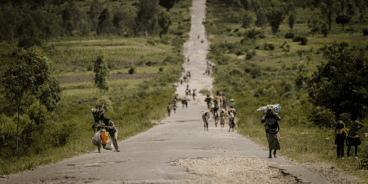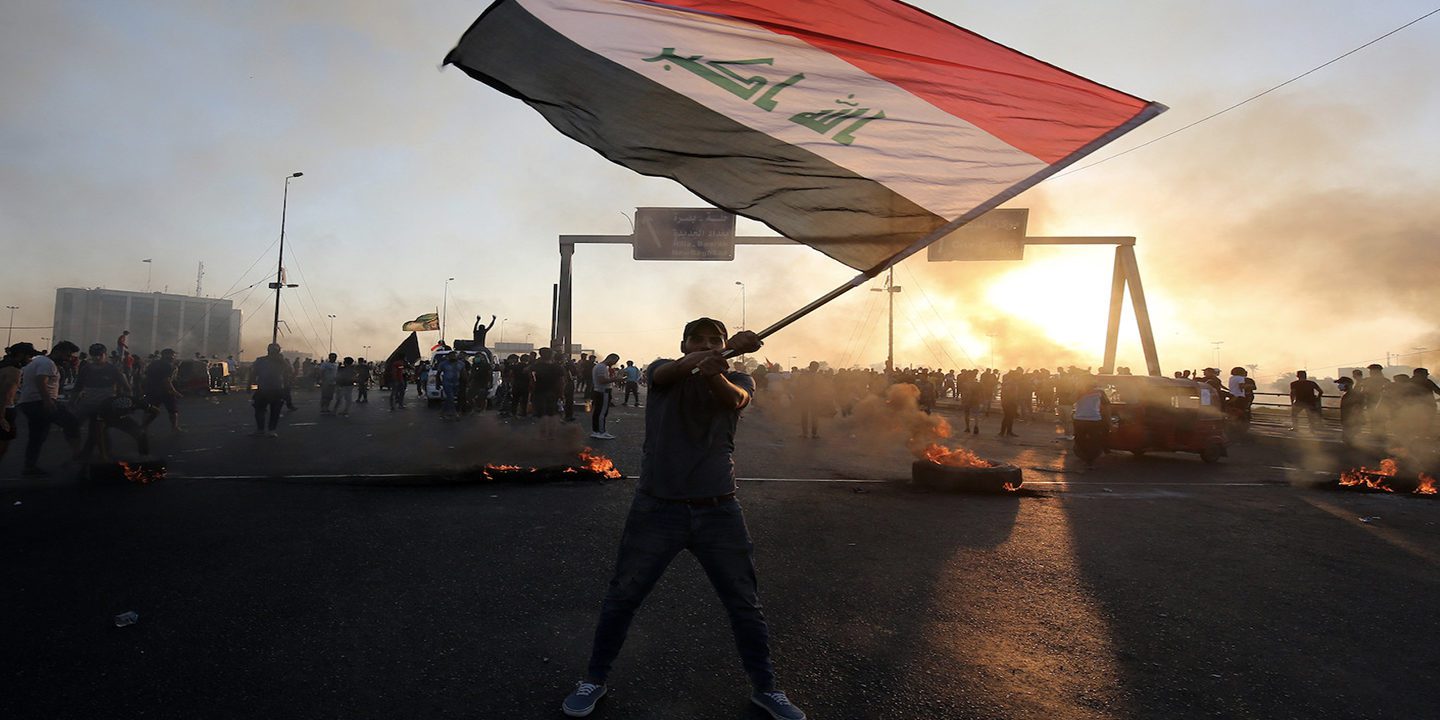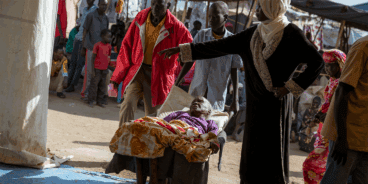

Atrocity Alert No. 175: Syria, Iraq and Afghanistan
Atrocity Alert is a weekly publication by the Global Centre for the Responsibility to Protect highlighting situations where populations are at risk of, or are enduring, mass atrocity crimes.
Civilians face imminent threat as Turkey attacks northeast Syria
Earlier today, 9 October, Turkish military forces launched military operations in northeast Syria. At the time of publication Turkish forces were carrying out airstrikes and directing artillery fire against the Kurdish Peoples’ Protection Units (YPG) and the Syrian Democratic Forces (SDF). The current military situation is unclear, but a Turkish ground invasion would pose a grave and immediate threat to Kurdish and other Syrian civilians in the northeast. Human rights activists and Kurdish representatives have expressed fears of “ethnic cleansing” potentially being perpetrated by Turkish forces.
President Recep Tayyip Erdoğan has previously warned that Turkey would pursue unilateral military action in northeast Syria if the United States continued to delay implementation of a proposed “safe zone” in the area. On Sunday, 6 October, President Donald Trump announced the immediate withdrawal of US troops from northeast Syria, effectively allowing Turkish forces to pursue this long-planned operation in the region.
During the United States-led international military campaign against the so-called Islamic State of Iraq and the Levant (ISIL), the SDF did the majority of the fighting on the ground in Syria. YPG fighters constitute the majority of the SDF and also played a key role in protecting the Yazidi population in neighboring Iraq during the 2014 genocide perpetrated by ISIL. US forces worked closely with the SDF in anti-ISIL operations and the SDF have officially denounced the US decision to withdraw as “a betrayal.” Turkey views the YPG as a “terrorist organization” and considers an independent Kurdish homeland in northeast Syria as a threat to Turkish national security.
Turkey also plans to resettle up to two million Syrian refugees who are currently in Turkey to a “safe zone” in northeast Syria after it has been “cleared” of the YPG and SDF. Panos Moumtzis, UN Regional Humanitarian Coordinator for the Syria Crisis, has emphasized that “for us as the United Nations, the safe zone concept is one that we have a bitter history [with] and actually we never promote or encourage. We don’t think it is something that had worked for the United Nations, keeping in mind Srebrenica and what had happened in the past.”
Under international law, returns of refugees and other displaced persons must be undertaken in accordance with the principle of non-refoulement and must be safe, voluntary and dignified. Turkey’s planned forced repatriation of Syrian refugees into a northeastern “safe zone” would appear to meet none of these criteria.
The international community must respond to the threats posed by the Turkish offensive. All parties in northeast Syria must strictly adhere to International Humanitarian Law and uphold their obligations to protect civilians.
More than 100 dead as Iraqi security forces shoot protestors
Massive protests against unemployment and unreliable public services – with demonstrators also demanding good governance and an end to corruption – have taken place across Iraq since 1 October. In response the security forces have used disproportionate and deadly force, including live ammunition, resulting in over 100 people being killed in the past week. In an attempt to suppress further protests, on 3 October the government implemented an internet blackout and imposed a curfew in Baghdad. The curfew was lifted on 5 October.
UN Secretary-General António Guterres and the Special Representative of the UN Assistance Mission for Iraq, Jeanine Hennis-Plasschaert, have both condemned the violence against protesters. On 4 October Secretary-General Guterres emphasized that, “freedom of expression and peaceful assembly are fundamental rights that must be respected.”
During a national address on 4 October, Iraqi Prime Minister Adil Abdul-Mahdi defended the security forces, asserting that they acted “within international standards” and comparing the security measures to “bitter medicine.” However, on Monday the military admitted to having used excessive force and on 8 October Prime Minister Abdul-Mahdi issued a 13-point reform plan focused on economic support for the poor and unemployed.
The deadly protests come less than two years after the Iraqi government announced the formal end of major military operations against the so-called Islamic State of Iraq and the Levant (ISIL). Iraqi security forces have been implicated in systematic human rights violations and abuses against civilians in formerly ISIL-held territory. Despite reconstruction efforts in areas ravaged by years of war, the government has not prosecuted perpetrators for atrocity crimes perpetrated since 2014 and sectarian tensions remain in many parts of the country. Without adequately addressing these issues or reforming the security sector, popular discontent and protests are likely to continue.
Iraqi authorities should carry out an immediate independent investigation into the use of deadly and disproportionate force against unarmed civilian protesters. The government of Iraq must respect the fundamental right of civilians to freedom of expression and peaceful assembly and should lift internet restrictions. The government should also implement a code of conduct for the security forces that is grounded in respect for universal human rights and ensure they exercise maximum restraint in response to any further protests.
Children amount to one-third of all civilian casualties in Afghanistan
Operations undertaken by Afghan security forces and the United States against the Taliban have escalated over the past month, resulting in widespread civilian casualties. On 19 September a US drone strike allegedly targeting a hideout belonging to the so-called Islamic State of Iraq and the Levant-Khorasan (ISIL-K) killed at least 30 civilians, the majority of whom were laborers returning from collecting pine nuts in the eastern Nangarhar province. At least 40 civilians, mostly women and children, were also killed at a wedding party in Musa Qula on 23 September during a raid conducted by Afghan Special Forces on a Taliban hideout.
In response to these and other deadly incidents, Tadamichi Yamamoto, the UN Special Representative for Afghanistan, noted that, “the disregard for civilian life exhibited by parties to the conflict in recent days, especially in indiscriminate attacks, is appalling. Civilians in Afghanistan must be protected.”
The increase in airstrikes follows the abrupt cancellation of peace negotiations between the United States and the Taliban by US President Donald Trump on 8 September. The Taliban also threatened to violently disrupt the country’s 28 September presidential elections. Although the elections were relatively peaceful, there was low voter turnout as many civilians feared being attacked.
Monday, 7 October, marked 18 years since the United States first intervened in the war in Afghanistan. Despite efforts to negotiate an end to the conflict, last week’s report of the UN Secretary-General on children and armed conflict in Afghanistan revealed that over 12,500 children have been killed or maimed between 1 January 2015 and 31 December 2018. Children amounted to one-third of all civilian casualties in that time period.
The Afghan government, with support from the international community, must increase efforts to protect all civilians from attacks by the Taliban and other non-state armed groups. All incidents involving civilian casualties must be properly investigated, in consultation with affected communities, and those responsible for any violations of International Humanitarian Law must be held accountable.
Related Publications


Atrocity Alert No. 462: Sudan, Haiti and Mozambique
